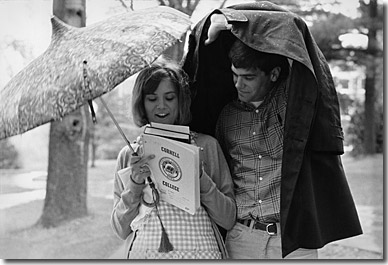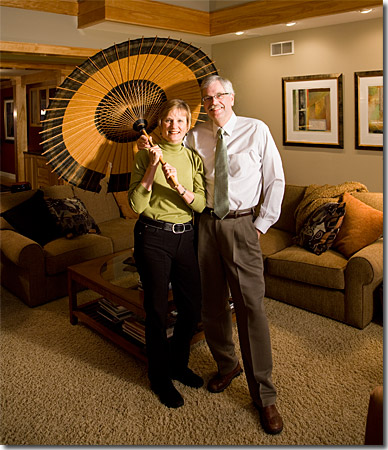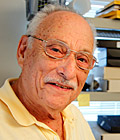John & Linda Schilling "The Case for the Small College"

From the LOOK caption: "Small-campus bonus: John finds it easy to run into blonde Linda Spies. Linda, from Emmetsburg, Iowa, studies to teach high-school French." Photo by Bob Lerner. LOOK profiled John and Linda Schilling as part of an article about small colleges that surged during the 60s. He was "ranked 15th in a high-school class of 650." He was a football player and physics major. She was identified as his girl friend – although they'd been dating only a short time. In the LOOK article and in the outward trappings of their lives now, the couple look very conventional. He became a doctor and she was a teacher and counselor. But John's minister father was involved in civil rights in Milwaukee. John and Linda were passionately against the war. They were so concerned that his draft board wouldn't grant him conscientious objector status that the couple thought about fleeing to Canada. "This idea that our country could be involved in such a war that was so wrong, you really did say, 'Listen, I'm going to leave if they won't allow me to express my opinions in this way.'" Linda says she felt they were part of a revolution in the 60s. "I was always proud of being part of the 60s! We were going to make changes!" John did receive his CO draft status and was assigned to alternative service at a hospital where he discovered his passion for medicine. He is now specializes in respiratory therapy. Linda taught fifth grade for five years. They have a son and a daughter. Then Linda went back to school and became a counselor. She worked with battered women and with students at the University of Wisconsin. They live outside Madison in a house they built on a lake. |

John and Linda Schilling in the house they built on a lake outside Madison, WI. They've now been married almost 40 years. The umbrella is one that a company sent to them after the LOOK article appeared. March 2009, photo by Bill Ganzel.
"I don't think of us as being radical. We still were pretty conventional in most of the things we did. We got married before we moved in together," she laughs. "You were going to go to graduate school, and I was going to teach school. But we didn't leave everything and go live in a commune (which was the way I remember, a more radical thing to do) probably because – what was conventional was working for us, for the most part, and we were pretty comfortable with that." He says, "I've always felt that – again, whether it be the family background or the Sixties – I've always felt that 'this' [the house and materialism] was not important. It's here. Yep. I'm very, very thankful because it is a wonderful spot. But if it were gone tomorrow, I could say, 'Fine, as long as we still have each other.' I truly believe that I can be just as happy anywhere. As long as we can eat!" [He laughs.] |





